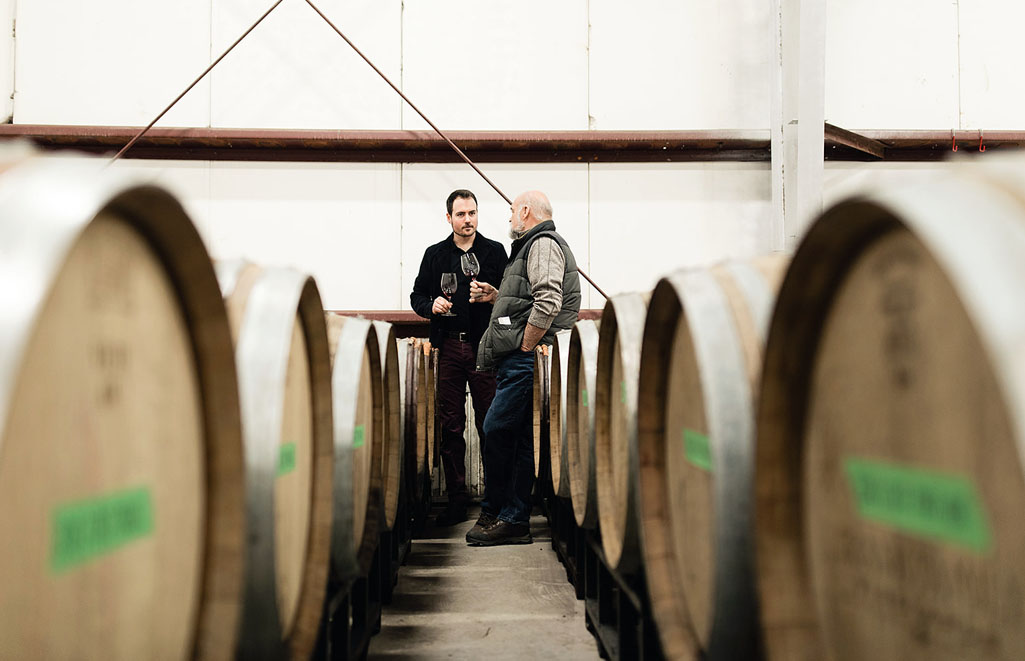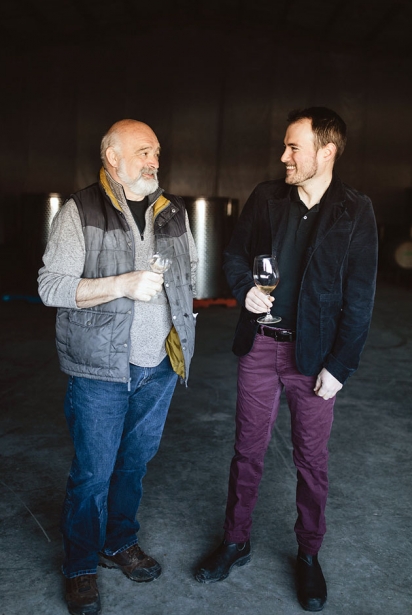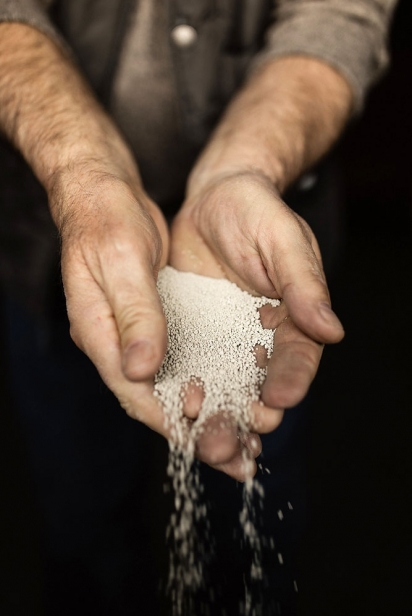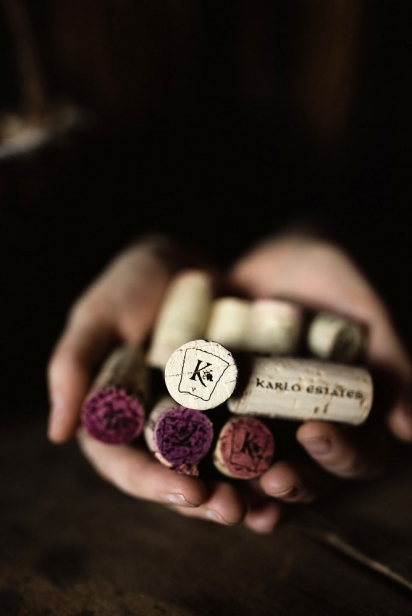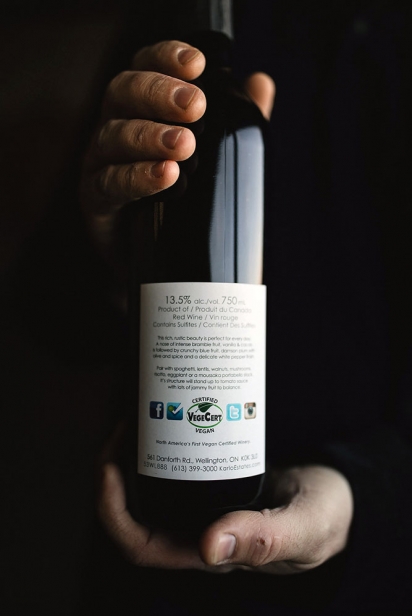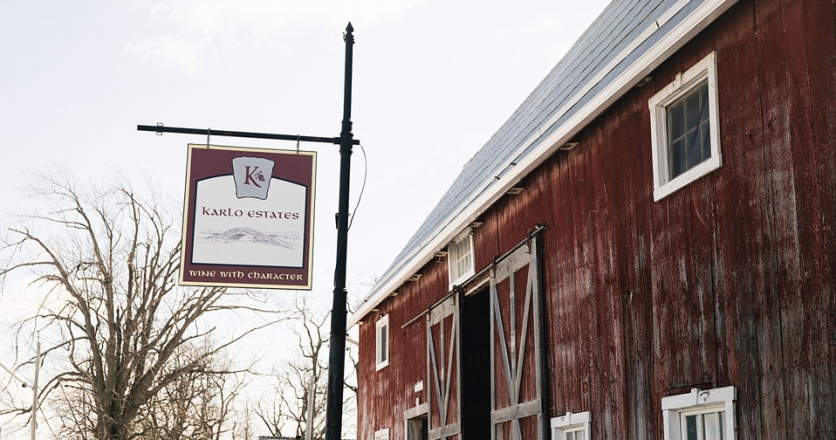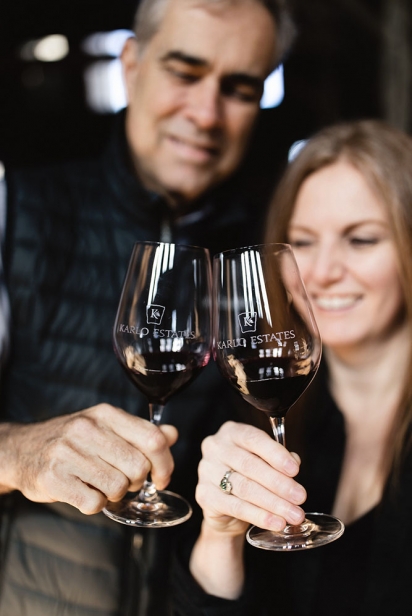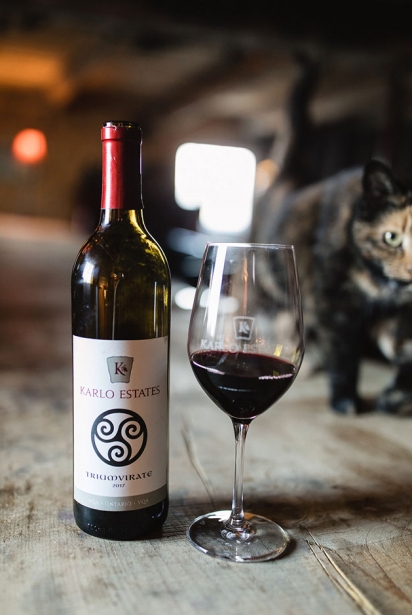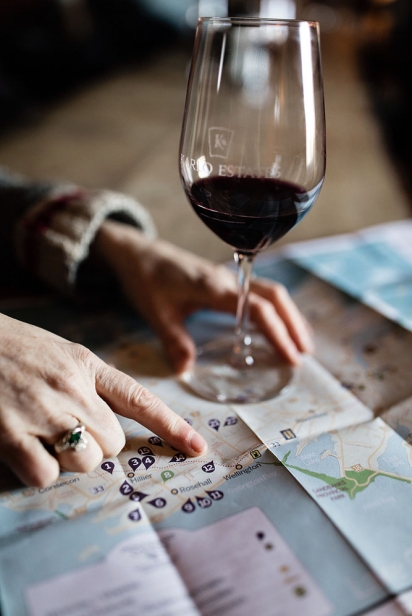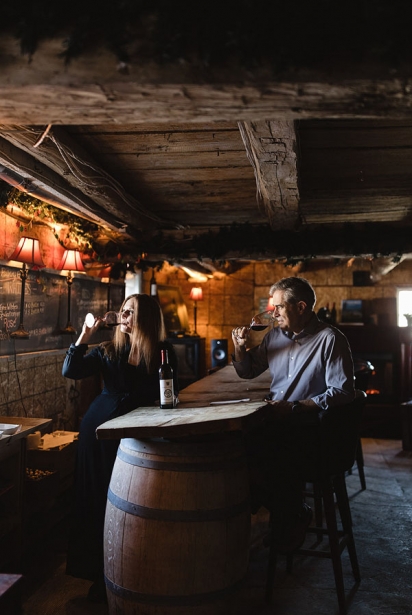The Thing about Vegan Wines
The popularity of plant-based diets is on the rise and while some may choose to celebrate their new environmentally conscious, animal-friendly lifestyle with a glass of wine, it may come as a shock to discover that glass of red isn't vegan — it isn't even vegetarian.
Winemakers typically use animal products during the fining stage to remove tiny organic particles, such as proteins or yeasts, to make the wine crystal clear. If they leave those solids undisturbed, they would eventually settle to the bottom of the barrel or tank, but removing the sediment without intervention is a lengthy process.
Some winemakers are opting not to filter their wines, classifying them as "natural wines," while others choose to get a little help from fining agents — many of which are animal-based — to speed up the process and give wine jewel-like clarity. In most cases, they use casein (milk protein), egg whites, fish fins or bladders, gelatin (taken from animal bones and cartilage) and chitosan (derived from shells and crustaceans). And while milk and eggs are okay with vegetarian eaters, they're a no-go for vegans.
To produce animal-friendly bottles, winemakers can turn to things such as carbon, bentonite clay, plant casein and vegetable mushes for vegetarian and vegan-friendly alternatives.
And as more wines are labelled vegan or vegan-friendly, we see a broad spectrum within those labels.
Just how vegan is a bottle of vegan-friendly wine? Well, that depends on the consumer and their definition of vegan.
When it comes to making vegan wine choices, "how black and white do you want to be?" asks Magdalena Kaiser, director of public relations for the Wine Marketing Association of Ontario.
The Oxford Dictionary defines vegan as "using or containing no animal products," but the definition can be open to interpretation.
A wine bottle can come in contact with animal products during the labelling process, as many types of glue are derived from collagen found in animals. Beeswax is often used during the corking process. Farmers will spread manure on the vineyard, or for some, biodynamic wines won't pass the vegan test because the animals roam the vineyard to help weed and fertilize the soil themselves.
"My understanding is that each person who is vegan has to make a decision on the definition and criteria that is acceptable," Kaiser says.
In her work promoting VQA Ontario wines, Kaiser admits more consumers are showing interest in vegan wines as a way to reduce their impact on animals and the environment. The organization has a list of suggested Ontario wineries that produce vegan wines on their website.
But no governing body confirms vegan-wine claims and no wine industry-wide certification exists. The onus is really on the consumer to get the information directly from the wineries, Kaiser explains.
Sherry Karlo, co-owner of Karlo Estates Winery in Prince Edward County, admits she fell "off the wagon" earlier in life, but reverted to veganism after becoming aware of some horrid conditions in slaughterhouses.
"I was so absolutely appalled and I was really angry at humanity for a long time," Karlo says. "I can't change the world, but at least I can change myself."
She vehemently told her husband she wouldn't drink his wine after finding out that it could come in contact with animal products. Lucky for her, Richard Karlo had already been using vegan alternatives for fining.
Before passing away in 2014, Richard recognized veganism as a growing movement, Karlo says. "Being the visionary that he was, he said, 'Yeah, let's be the first to market vegan because we are and you are,' he told me."
To make the decision easier for wine drinkers, Karlo went the extra step to seek out certification from VegeCert — a nonprofit organization that certifies vegetarian and vegan foods through facility inspections.
The organization currently certifies two wineries as vegan in Canada — Karlo Estates and Frozen In Time, a Newfoundland winery and distillery focused on berry wines and spirits, according to Richard Rabkin, VegeCert's managing director.
There are other vegan certification programs out there, including BevVeg, an American law firm that certifies according to its own set of vegan compliance standards. Associazione Vegetariana Italiana, an Italian organization, has put a stamp of approval on vegan Chiantis.
"When providing vegan certification for wine, we are ensuring that they are not using any animal-based ingredient in their process," Rabkin says, adding that their scope is post-harvest and only looks at the vinification process.
Taking things one step further, Karlo sought water-based adhesive labels and has certification from her Portuguese cork supplier stating no animals are touched in the process of manufacturing the winery's stoppers.
Despite all the efforts made to check every vegan-safe box, "we don't lead with it in the tasting room," says Spencer Mayer, Karlo Estates' assistant winemaker.
"There is something adversary against the ‘V' word," he says. "Some people are so far opposed to the movement that they won't participate in anything vegan."
If at all, the mention of vegan wines comes up at the end of a tasting and most people are pleasantly surprised, Mayer says.
"The truth is a vegan wine is accessible to everybody, whereas a wine that's not vegan is not," he says. "The way we approach it, this is a wine that can be enjoyed by all."
For the most part, Mayer and head winemaker, Derek Barnett, use bentonite clay and Vegecoll — a popular plant-based fining agent derived from potatoes.
"People say our wines taste cleaner," Mayer explains, but admits that fining agents (plant- or animal-based) rarely imprint a taste profile on the wine.
There are indeed challenges to vegan winemaking, namely in the sense that you have fewer options with which to work. "We've created a tighter box to play in and have fewer tools in our toolbox, so we have to get it right the first time," Karlo says.
"It's very important for us to manage and monitor the wine all the way through, to make sure it doesn't go where we don't want it to go," Mayer adds.
Beyond the challenges in the cellar, it was customers who faced one of the hardest changes during the strictly vegan transition. "'Where's the cheese!' people said," laughs Karlo, who always insists on pairing wines with food in the tasting room. "They're getting used to it," she adds and goes on to list current vegan food pairings that include tamari almonds, kettle chips, barbecue peanuts and vegan chocolate.
Karlo Estates embraces the vegan philosophy through and through, but other wineries in Ontario are opting for a softer approach by calling their wines vegan-friendly. With this label, no animal products can be used in the making of the wine itself, but it doesn't necessarily mean the establishment is animal-free. For example, you might be able to enjoy a plate of the region's finest charcuterie on the winery's patio with your glass of vegan-friendly wine.
Regardless of where one stands on the vegan scale, Karlo says everyone has a growing consciousness of the environment and our human footprint on the Earth. Karlo believes that the plantbased movement isn't a temporary popularity experiment — it's a permanent change.
"It's the age of Aquarius," Karlo declares. "People are becoming more conscious… they want to do what's good and what's good for the environment."
Karlo Estates
561 Danforth Rd., Wellington, Ont.
karloestates.com | 613.399.3000 | @karloestateswinery


